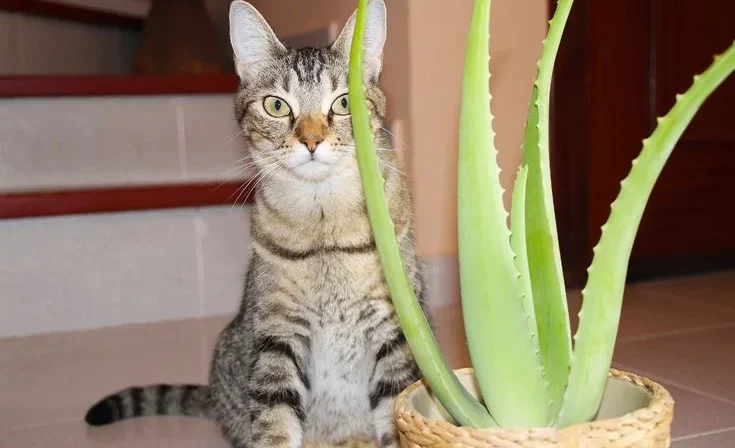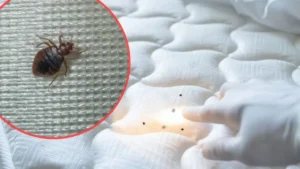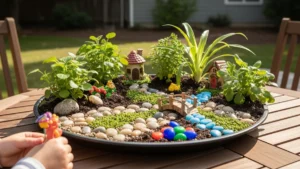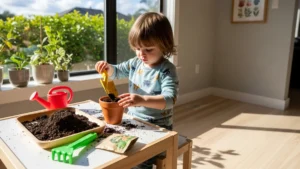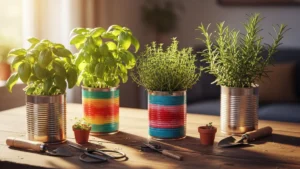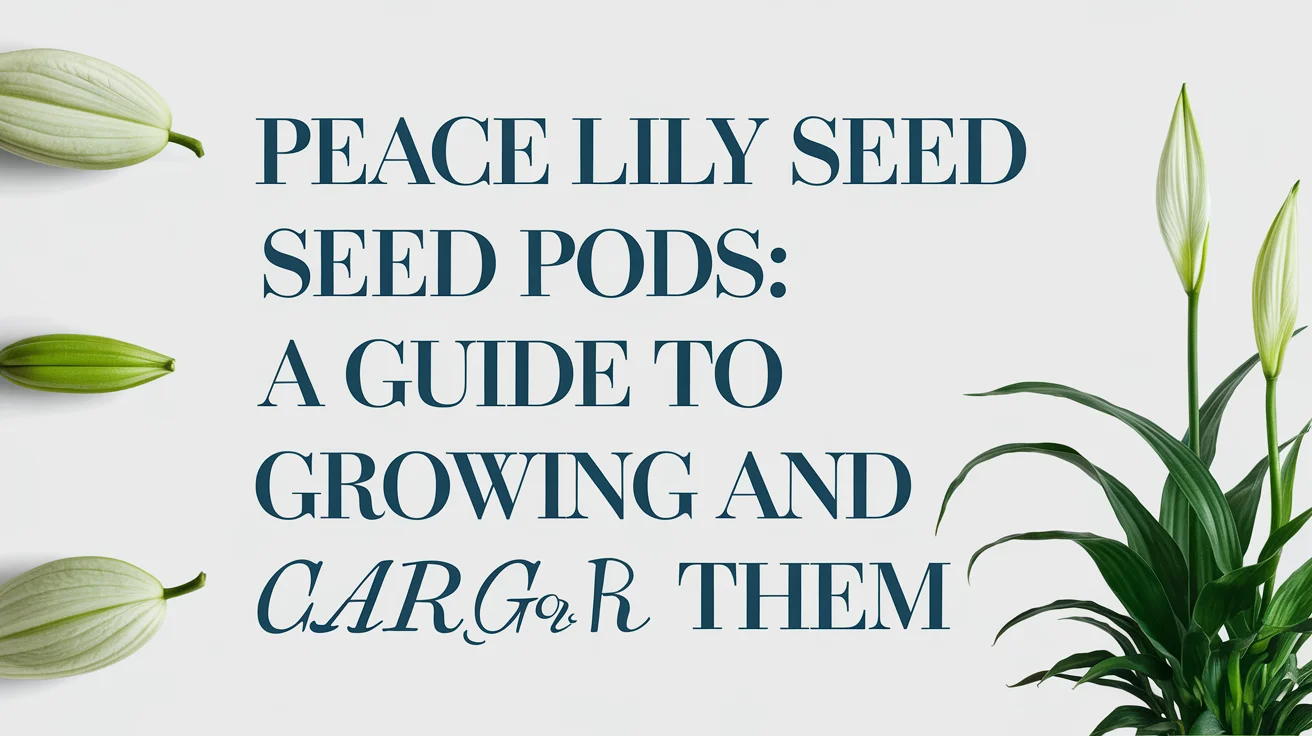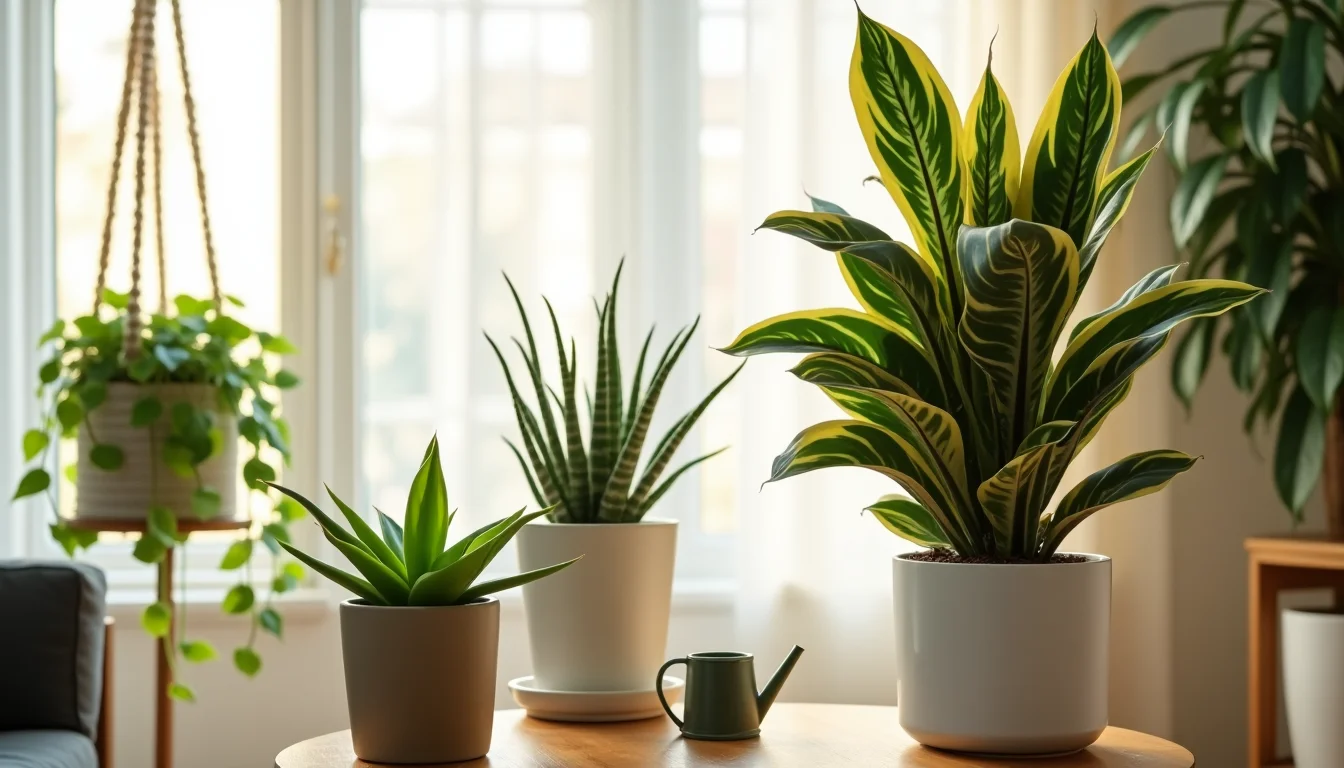If you’re a cat owner who loves greenery, you may have wondered: is the aloe vera plant poisonous to cats? While aloe vera is often praised for its healing benefits in humans, it can actually pose risks for your feline companions. Knowing which houseplants are safe and which are harmful is crucial to maintaining both a beautiful home and a safe environment for your pets.
In this article, we will explore why aloe vera is considered toxic to cats, the potential health issues it may cause, the symptoms of poisoning, and safe alternatives for pet-friendly households.
Why Aloe Vera Is Dangerous for Cats
Aloe vera contains compounds known as saponins and anthraquinones, which act as natural defense chemicals in the plant.
When cats ingest these substances, they may experience:
- Gastrointestinal irritation
- Vomiting
- Diarrhea
- Lethargy
- Changes in urine color
These effects occur because cats’ digestive systems cannot break down certain plant toxins as efficiently as humans.
Symptoms of Aloe Vera Poisoning in Cats
Pet parents often ask, is the aloe vera plant poisonous to cats if only a small piece is eaten. Sadly, even small amounts can trigger the following symptoms:
- Excessive drooling
- Vomiting or retching
- Diarrhea
- Weakness and lack of energy
- Loss of appetite
- Tremors in severe cases
Recognizing symptoms early is vital. The faster you respond, the better chance your cat has of avoiding long-term health issues.
What to Do If Your Cat Eats Aloe Vera
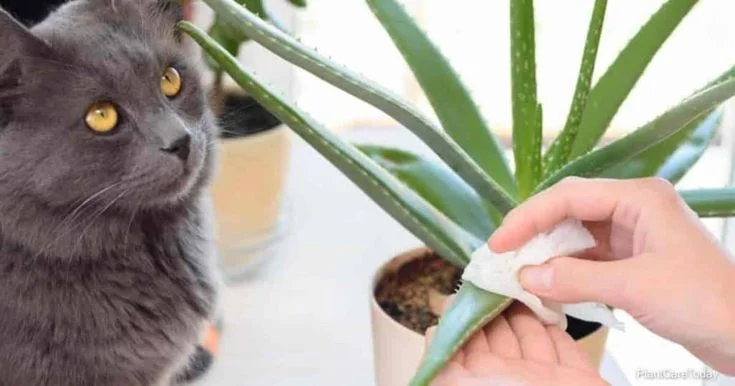
If you’re worried about what to do if your cat eats aloe vera, the first step is to remain calm and act quickly. Aloe vera is toxic to cats, so remove your pet from the plant immediately to stop further ingestion. Check for early signs of poisoning such as drooling, vomiting, diarrhea, or unusual lethargy.
Next, contact your veterinarian or a pet poison helpline right away and provide details about how much your cat may have consumed. Do not try home remedies without professional advice, as they can make symptoms worse.
In many cases, a vet may recommend treatments such as inducing vomiting, administering activated charcoal, or giving fluids to help flush toxins from the body. By seeking prompt veterinary care, you can greatly reduce the risks and ensure your cat recovers safely.
Step 1: Stay Calm
Cats are curious, and accidents happen. Panicking won’t help your pet, so take a deep breath and act quickly.
Step 2: Remove Plant Access
Immediately take your cat away from the aloe vera plant to prevent further ingestion.
Step 3: Contact a Veterinarian
Call your vet or a pet poison helpline right away. If possible, bring a sample of the plant your cat ate so the vet knows exactly what toxins are involved.
Step 4: Follow Professional Guidance
Your veterinarian may suggest treatments such as inducing vomiting, administering activated charcoal, or giving IV fluids in severe cases.
For reliable information on poisonous plants for cats, you can visit the ASPCA’s Animal Poison Control Center: ASPCA Toxic Plant List.
Safe Alternatives to Aloe Vera for Cat Owners
Instead of aloe vera, consider these cat-safe plants to bring greenery into your home:
- Areca Palm: Non-toxic and visually stunning.
- Spider Plant: A favorite among cat parents, safe if chewed.
- Bamboo Palm: Adds a tropical vibe without danger.
- Calathea: Colorful leaves that are harmless to cats.
These alternatives allow you to enjoy houseplants without compromising your pet’s safety.
Preventing Plant Poisoning in Cats
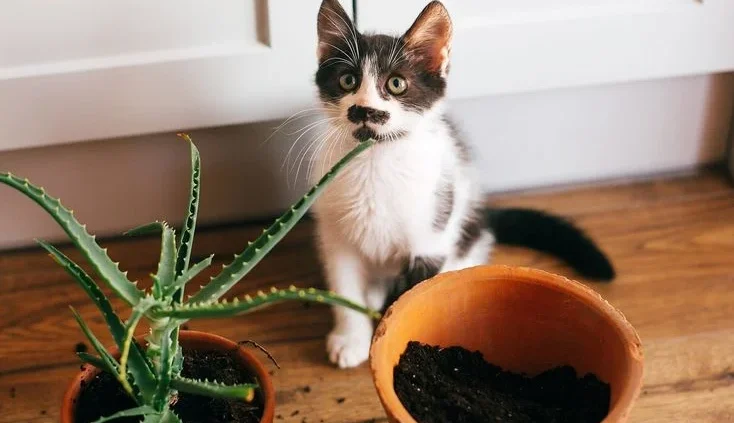
Preventing plant poisoning in cats is essential for every pet owner who enjoys keeping houseplants at home. Since curious felines love to chew on leaves, the best strategy is to place toxic plants out of reach or avoid keeping them altogether.
Instead, choose cat-safe options such as spider plants or herbs that add greenery without risk. For example, many people grow aloe indoors for its healing benefits, but it’s important to learn how to care for a medicinal aloe plant properly and also keep it away from cats, since aloe can be harmful if ingested.
Providing alternatives like cat grass or catnip can also satisfy your pet’s natural chewing instincts. Additionally, regular training with positive reinforcement helps redirect attention away from harmful plants. Always inspect your home for hidden dangers, especially when introducing new greenery.
By creating a safe environment and knowing which plants are toxic, you can successfully prevent accidental poisoning and keep your cat both healthy and happy.
Place Plants Out of Reach
Keep harmful plants on high shelves or hanging baskets where cats cannot access them.
Provide Cat Grass
Offering safe cat grass gives your feline a healthy outlet for their chewing instincts.
Train with Positive Reinforcement
Use treats or toys to redirect attention whenever your cat shows interest in dangerous plants.
Regularly Inspect Your Home
Do routine checks to ensure no unsafe plants or substances are within your cat’s reach.
Aloe Vera in Cat Products Is It Ever Safe?
Some pet shampoos or topical creams may list aloe vera extract as an ingredient. However, these are specially formulated and processed to remove harmful compounds.
When applied externally in small amounts, aloe vera in veterinary-approved products is generally safe. Never apply raw aloe vera gel from the plant directly to your cat’s skin or wounds.
Myths About Aloe Vera and Cats
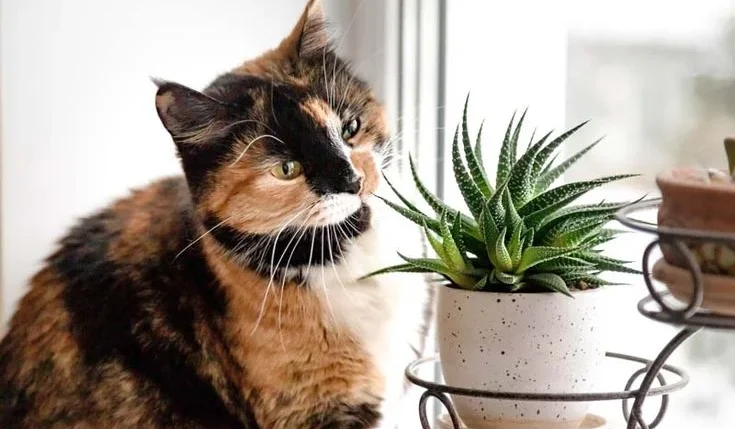
Many pet owners assume that since aloe vera is “natural,” it must also be safe for pets. Unfortunately, this is a dangerous myth.
Natural does not always mean harmless. Even small amounts can irritate your cat’s digestive system, and repeated exposure increases health risks.
FAQs
1. Is aloe vera safe for cats to touch?
Yes, touching aloe vera is usually harmless. The danger lies in ingestion, not contact.
2. Can aloe vera kill cats?
While death is rare, severe poisoning can occur if large amounts are consumed. Immediate veterinary care is essential.
3. What if my cat licked aloe vera gel on my skin?
A small lick might not be fatal, but monitor your cat closely. If symptoms like vomiting appear, call your vet.
4. Are aloe vera-based air fresheners harmful to cats?
Products with aloe vera fragrance are less risky, but avoid any direct ingestion. Always choose pet-safe alternatives.
5. Which common houseplants are toxic to cats besides aloe vera?
Lilies, pothos, philodendron, and peace lilies are also toxic and should be avoided.
Conclusion
So, is the aloe vera plant poisonous to cats? Yes, aloe vera is toxic and should be kept away from your feline friends. While the plant offers countless benefits for humans, it poses a real danger to pets.
If you’re a plant lover who wants to keep greenery without risking your cat’s safety, consider exploring pet-friendly options such as air plants. They’re beautiful, low-maintenance, and safe for your furry companions—learn more in this guide on how to care for air plants indoors.
By learning the symptoms of aloe vera poisoning, acting fast in emergencies, and choosing safe plant alternatives, you can protect your cat’s health without sacrificing your love for indoor greenery.
Ultimately, creating a pet-friendly environment means balancing beauty with safety ensuring your cat thrives in a home that’s both stylish and secure.

